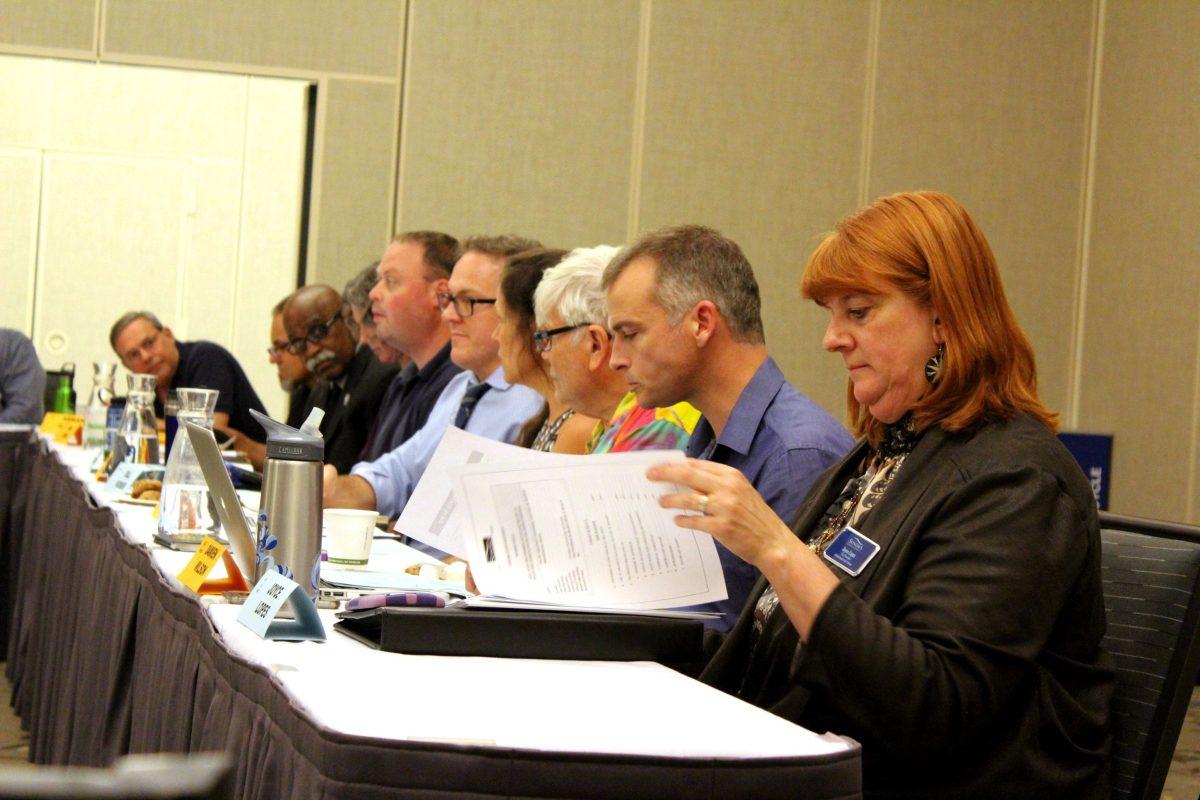The Sonoma State University Academic Senate has approved a resolution in a response to a California State University executive order, which caps general education credits available for students at 48 units and mandates that certain GE areas be no more than three units.
CSU authorities sent out the executive order to all CSU campuses on Aug. 23, which, according to the CSU, intends to improve the GE pattern. The CSU claims the main focuses of the policy are to clarify GE requirements, ensure equitable opportunity for student success, and streamline graduation.
However, the Sonoma State Academic Senate met on Sept. 28 to discuss and revise the resolution, in response to Executive Order 1100, to reflect its concerns. “The real outrage was coming around these main factors: that there was a ridiculous timeline and we were not getting consulted,” said Vice Chair of Academic Senate Laura Watt. “And so in the interest of not privileging one particular impact on campus over another, because there are multitudes of really quite distressing impacts to programs and work load, we kept it as streamline as possible.” The resolution also calls for the CSU to rescind the order until appropriate consultation has occurred.
The new GE policy changes the 50-unit requirement to a 39 lower division unit and nine upper division unit requirement. CSU students will now be required to complete nine lower division units in area A and nine lower division units, as well as three upper division units in only areas B, C and D, and three lower division units in area E. CSU campuses are not to allow students to exceed these unit counts. A C- or higher in each course, a laboratory class and a passing grade of the WEPT are still necessary for graduation. This policy will go into effect fall 2018 for most CSU campuses, but Sonoma State requested, and the CSU granted, a year extension.
Many Sonoma State academic senators are upset and do not believe it will help the students but actually make it more difficult, especially in terms of speedy graduation.
“I have a concern that the EO 1100 might be contradictory to its purpose, which is speedy graduation,” said Senator Carlos Torres. “I’m wondering if the objectives might be contradictory to its implementation, being that we have so many programs that are autonomous here at Sonoma State that are about streamlining graduation already, and that there might be an interruption in the way those are processed due to the rearrangement.”
If the order is not rescinded, lecturers will need to revise and reinvent curriculum, which will create an increased workload for faculty. Also, multi-cultural classes such as American multicultural studies, Chicano studies, Native American studies, sociology, theater, philosophy, English, and German courses will be significantly affected and many will be lost as the executive order shapes a more standardized curriculum. Programs like Freshman Year Experience and Liberal Studies Portfolio Program will also be affected, faculty members say.
After adding a few minor amendments to the pre-existing resolved clauses, Senator Catherine Nelson proposed a new clause. The proposed clause touches on the impact the executive order will have on Sonoma State’s multicultural classes and is as follows: “The SSU Academic Senate affirm its commitment to diversity as embodied in SSU’s mission statement and express concern that the implications of executive order 1100 threaten that commitment.”
This clause had many responses both in support and opposed. Senator Sakina Bryant, a supporter of the proposed clause said, “I can’t think of a more central mission or objection that we could have to this particular order or what it could do the fabric or actual multicultural and diversity at the university.”
After much discussion, the proposed clause was up for vote. Former Chair Ben Ford abstained, which resulted in a 12-12 tie; this left the decision to the chairwoman, Carmen Works, who chose to include the clause in the resolution.
The resolution as a whole passed unanimously and the Senate will send it to the Board of Trustees, Chancellor Timothy White, Executive Vice Chancellor Loren Blanchard, the Academic Senate CSU and campus senate chairs.
The SSU Academic Senate is hopeful that they will have Executive Order 1100 rescinded until appropriate consultation and deliberation has occurred, but in the meantime is preparing to adjust to the demands of the executive order.




































